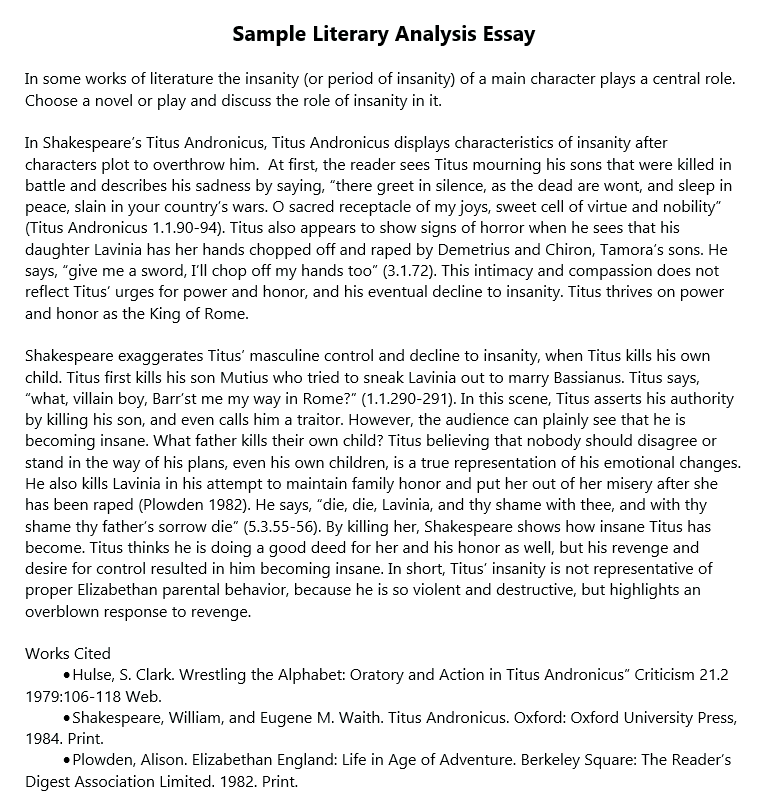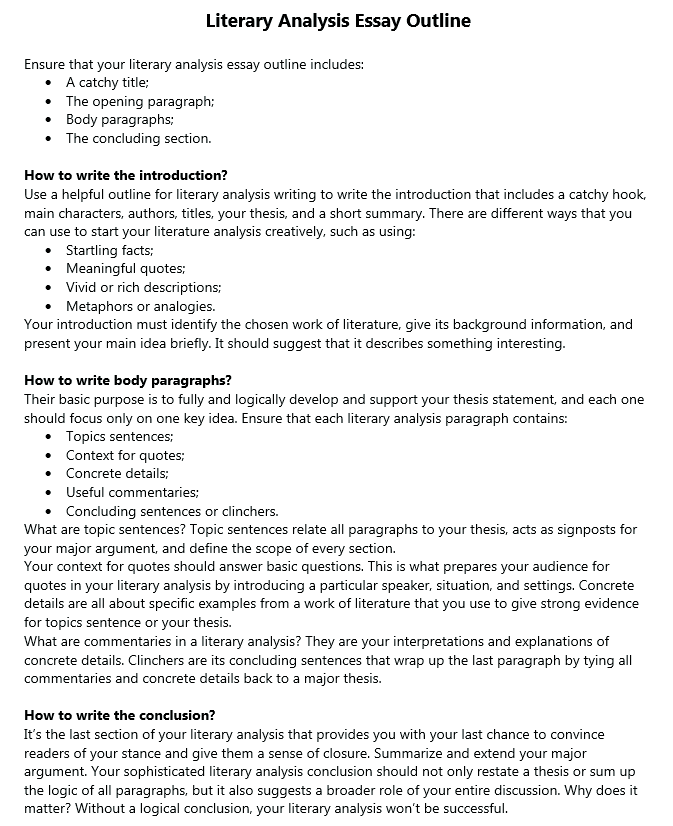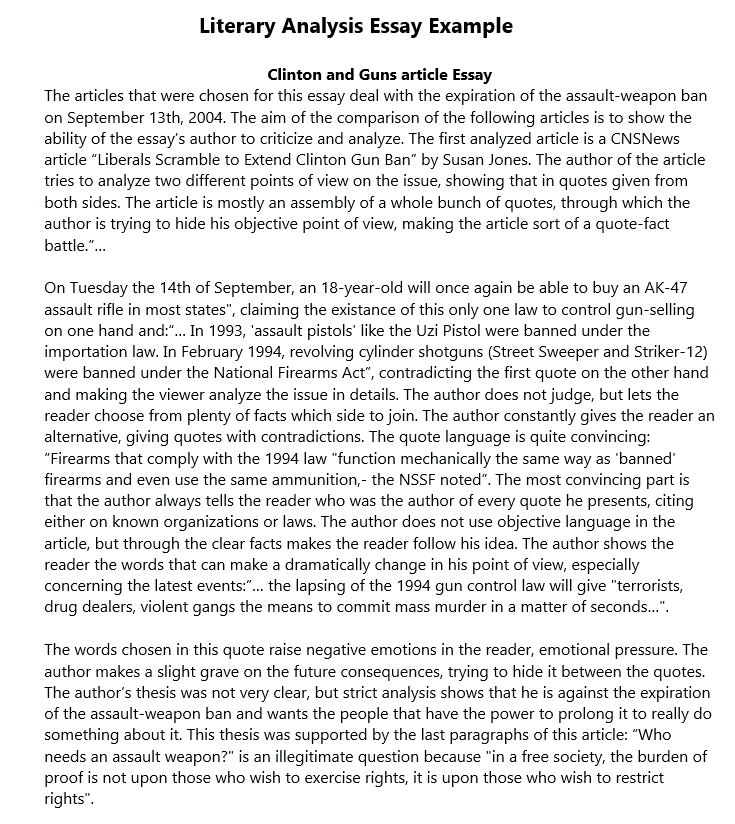Literary analyses essay is one of the tasks that students often are assigned during the educational process. Skill to analyze is one of the important qualities that help us in our life journey, and the ability to analyze a piece of literature teaches students to extract the most relevant and necessary information from what they read.
How Do You Write a Good Literature Analysis Essay?
When you are given the task to write a literary analysis essay you should do the following:
- Read carefully all the essay topics. Think which one you can better express your thoughts in.
- After choosing the topic, think about what and how you will write.
- Consider what aspects of the problem you may reveal in your work, questions to be formulated and answers to them, evidences you will provide.
- Draw an outline, draw a diagram, include your preliminary ideas.
- Think about the evidenced to support your thoughts: quotes from the text, episode references or text analysis.
- Chose the writing style.
- Write an introduction, body and conclusions.
- Carefully read the work. Correct inaccuracies and mistakes.
What are the Elements of Literary Analysis Essay?
Literary analysis usually includes:
- study of the concept;
- determination of the literary genre of the work under study;
- analysis of structure, plot and composition of a piece of literary work;
- determination of conflict;
- determination of theme and problems;
- literary work name analysis;
- analysis of the image of the writer and his role in the literary piece of work;
- analysis of main characters;
- analysis of secondary characters;
- analysis of literary devices;
- determination of the main idea of the piece of literary work.
Outline Structure for Literary Analysis Essay
Before you start writing your essay, you need to clearly consider its plan. The aim of an outline is to structure your thoughts in a coherent and logical text.
Immediately after you have received the topic for your future essay, ideas and images will begin to arise in your head. Take a piece of paper and make notes of what comes to your mind. Later on, you will be able to develop them into the whole essay.
You should think carefully about what you want to say on the topic. Write down your ideas on the paper, and when you have all your ideas before you, you will easily decide in what sequence you want to display these thoughts in your paper. This is necessary for a clear structure of the essay.
Literary analysis essay usually has the following structure: introductory part, main part and conclusive part.
In the introductory part, the information must be written as if it would be read by someone who knows nothing about the topic. Here you must reveal the theme, problems and relevance of your essay.
- What is your source piece of literary work?
- What do you know about the author of his literary work?
- What is its genre?
- What aspects would you like to reveal in your project?
When writing an intro part, try answering the following questions:
In the intro section you should present your thesis statement. It should be a sentence long formulated main focus of your analysis. And remember, an introduction is the first part the reader looks at. It should be catching the reader’s attention and making them want to read more and more.
Once the intro part is done, proceed to write the body part. The main part is an analysis of a literary work in the aspect provided by the theme. Do not forget that you must not retell the piece of literary work you are analyzing. Here you should highlight all your thoughts, emotions caused by the work.
You should support each thought by examples from the original text. Feel free to give your own assessment of the character or the circumstances in which the character found them. This makes any essay brighter and more impressive.
The main part is, for the most part, your own reasoning about what worries you in the whole story. Show here the evolution of your thought, the moment when your impression and ideas originated, how it evolved and what conclusion you finally came to.
Your essay should end with a conclusion. The main requirement of the conclusion is that it is not just formal. Your reader should not doubt its necessity. The conclusion should be organically linked with the previous statement.
So, in the final part you need to answer the question asked in the introductory part. This is a kind of brief theorem developed through the previous parts of the essay.
After you are done with this part, be sure to review your essay for compliance with the original plan. Check the mistakes and inaccuracies. If you have a chance, ask a family member or a friend to read your paper and give their feedback.
What is an Example of Literary Analysis Essay?
When writing a literary analysis essay, especially when doing it for the first time, many students prefer using readymade examples. This gives them a clearer idea of how the essay should be and what to include in it. Find several good examples of literary analysis essay below.




